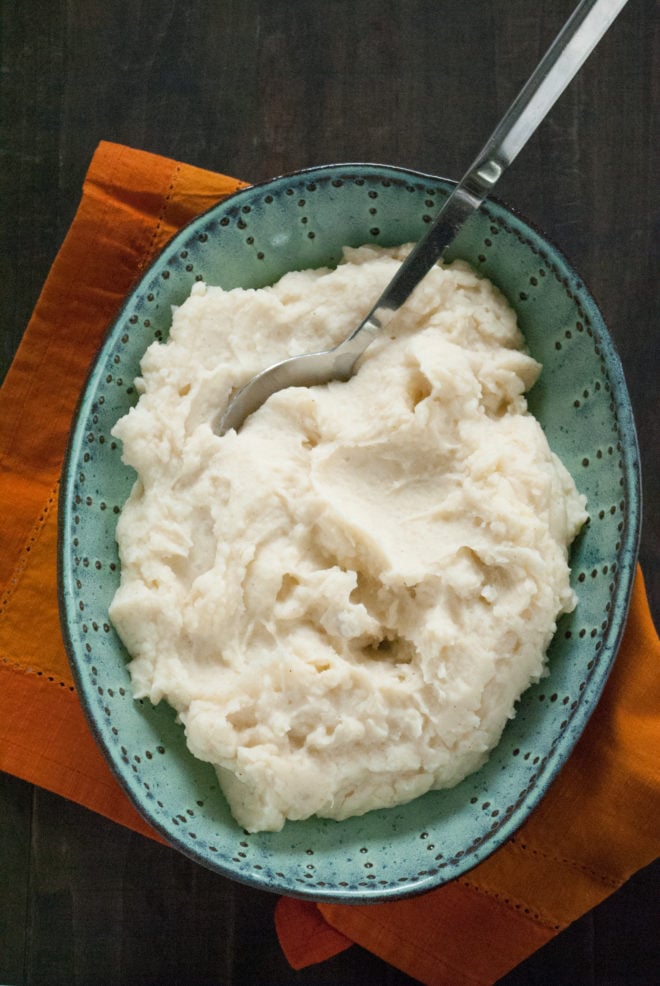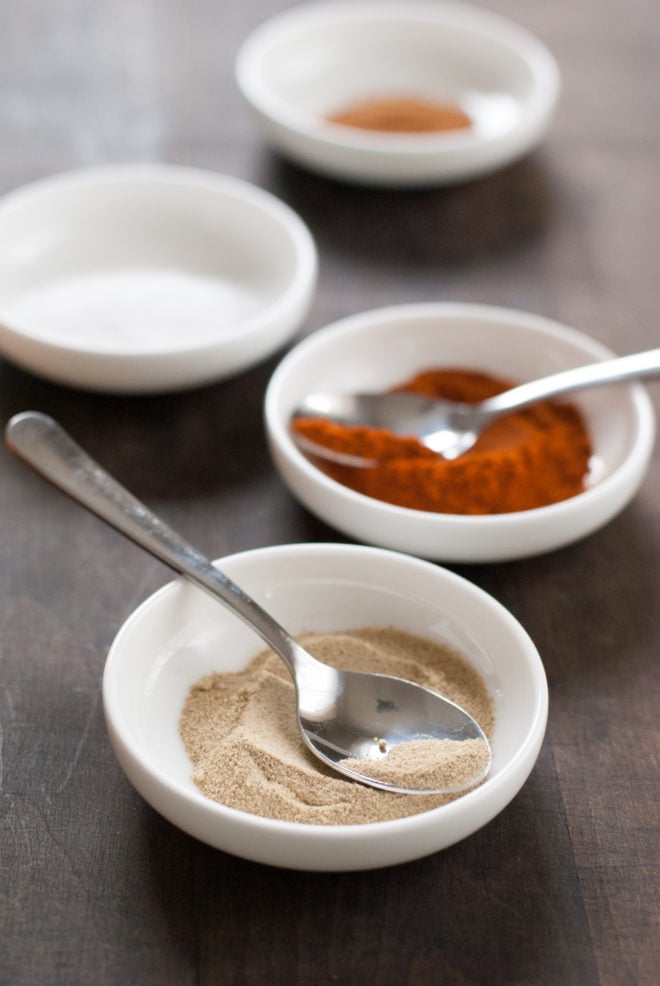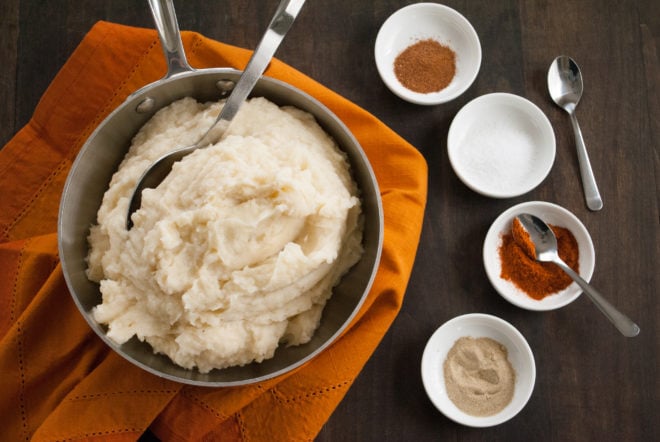Culinary School Lesson: Super Seasoning For Your Spuds

In my “What I Learned in Culinary School” series, I’ll be sharing tips and tricks that I learned from two years of working with some of the country’s best chefs. This will include big things like learning to work efficiently, and small things like how to cook bacon perfectly. All of them will be applicable to your home kitchen, making you a faster, better, and more confident cook.
There’s an infinite number of ways to make mashed potatoes, and that’s one thing I love about them. You can make them really smooth or leave them lumpy. You can mash them with a ricer, masher or mixer.
You can stir in melted butter, room temperature butter, milk, cream, sour cream, buttermilk or something else (hello, blue cheese mashed potatoes).
But I think there’s one thing we can all agree on: a bland scoop of mashed potatoes is the worst scoop of mashed potatoes.

That’s why I’m here today to talk about one specific thing in regards to mashed potatoes: seasoning them properly.
Make your potatoes using whatever method is your favorite, and mix in whatever butter and creamy element you’d like.
But they’re not finished until they’re well-seasoned. My culinary school used four things to season mashed potatoes: salt, white pepper, cayenne and nutmeg. Let’s break it down:
Salt
If you do nothing else, make sure you salt your potatoes. By nature, potatoes are pretty bland, and will end up tasting like cardboard without some salt.
While we used kosher salt for just about everything else, my school use iodized salt (a.k.a. table salt) to season mashed potatoes. Because the granules of iodized salt are so much smaller than kosher salt, a teaspoon of iodized salt really is more salty than a teaspoon of kosher salt.
This means that if you have a big Thanksgiving dinner-sized batch of mashed potatoes, it might be a little bit easier to season them with iodized salt, as you’ll need less to achieve the same effect.
However, any type of salt will work here. Just make sure you add enough so that the flavor of the potato no longer seems dull and flat.

White Pepper
A classic French technique, we seasoned with white pepper over black pepper mainly for aesthetic reasons – white pepper disappears into the potatoes and doesn’t leave black flecks running through them.
While this aesthetic reason probably won’t matter to most home cooks and their guests, the flavor of white pepper is also really nice in potatoes.
White pepper is slightly hotter than black pepper, which works well to liven up the potatoes and give them some bite. White pepper is also common in Asian cooking, so if you invest in a jar of it, you’ll be all set for stir-fries, too.
Cayenne
Not too much, as you don’t want pink mashed potatoes. But try adding just a pinch of cayenne next time. You won’t end up with spicy potatoes as long as you just add a bit.
But the little amount of cayenne will add even more depth of flavor to mashed potatoes and make them tasty in their own right, instead of just a vehicle for my simple gravy recipe.
Nutmeg
Not just for holiday baking! Nutmeg is another classical French seasoning for mashed potatoes. Again, you want just a small pinch.
Many people find that the warm flavor of nutmeg enhances the creamy flavor of the mashed potatoes (or any creamy dish).
It’s hard to explain, but it gives the potatoes “a certain something” that will make your guests go back for seconds.

Use this seasoning guide to make a perfect pot of mashed potatoes, every time. And check out my loaded mashed potato casserole for any leftovers!


OMG! These were some of the best mashed potatoes I have ever tasted. I thought it was funny that you assumed I could taste and identify all of the spices you added. I could not. But that just enhanced my wonderment at how delicious the mashed potatoes were. Yum!